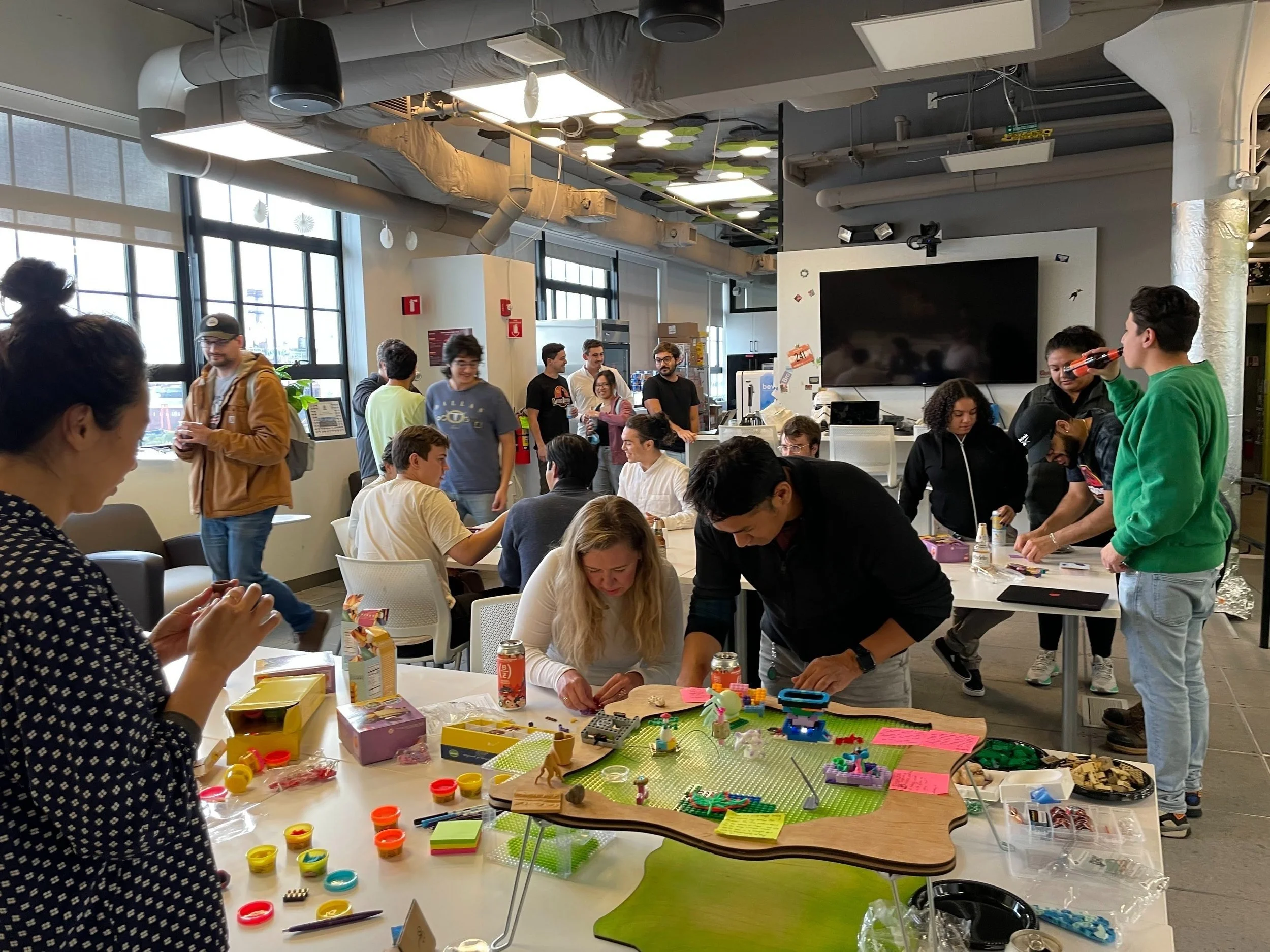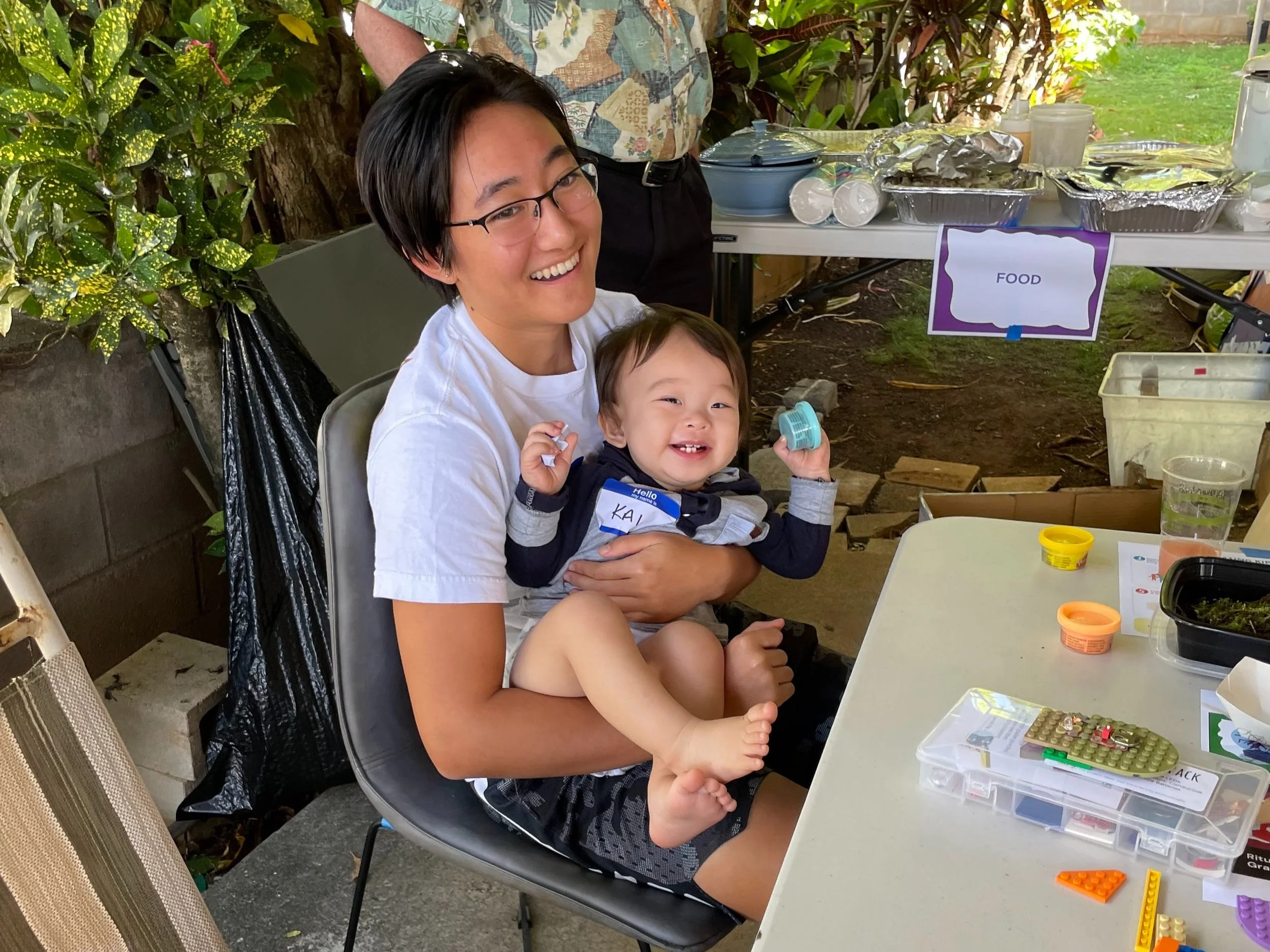GRATITUDE
This project grew out of the 2022 Ginkgo Bioworks Creative Residency, for which the theme was PLAY. Takara thanks Ginkgo Bioworks and Faber Futures for the opportunity.
The prototype workshops were conducted in collaboration with communities percolating deep agricultural questions. Takara thanks:
Xinampa Community Biolab and Migrant Education Region XVI in Salinas, California
ohana and a range of community groups in Oahu, Hawai’i.
the Ginkgo Bioworks community in Boston, Massachusetts.
Takara is grateful for the support, resources, and responsibility granted to her as a participant of the Ka Maka ʻĪnana Cohort IV, a program of the Purple Maiʻa Foundation and the University of Hawaiʻi Office of Indigenous Innovation.
Takara is grateful to journey forward in the development of this project with the support of Montalvo Arts Center Lucas Artist Residency Program and Santa Clara University in February through April 2023.
In all these journeys, Takara feels deep gratitude towards her family and their legacy of stories shared down through generations.
“To play is to be in the world. It is to be open to surprise, contingency, and improvisation—a critical skill for our combined future.“ - Christina Agapakis
The Floating Kīpuka play kit aims to blend knowledge across time and cultures to create playful spaces for more voices in the discussion of just biofutures. It invites people to imagine new types of playful spaces of trust for collaboratively dreaming with biology with a focus on agricultural futures. The custom assembly pieces blend lab tools, organisms at scales, cultural legends, rituals of gratitude, and agricultural labor stories to bring culture and ethics directly into early bioengineering and sustainability design journeys. It is a space where questions can be asked, knowledge is multi-directionally shared, valued, and collaboratively grown.
The table and inclusion of local materials ground the kit into an imagined landscape, turning the structure into a centerpiece that can be customized to location and culture. It is a suspended assembly space enabling the snapping of components above and below the build plane, encouraging people to think of systems that cycle in blended spaces above and below land, in soil, sea, sky, and self. The snap-on play pieces represent a range of earthlings, including people, bacteria, fauna and flora at the same size scale - as they are interconnected and equally important in ecosystems.
What is a Kipuka?
The table developed for this project represents a kīpuka, a Hawaiian word for an isolated patch of vegetation surrounded by lava flows. It is a natural seed bank, holding life to propagate into the future. Kīpuka is also poetically used to mean a place where life or culture endures, regardless of any surrounding turbulence and injustices. Similarly, this modular assembly is meant to create a suspended safe space to hold ideas and dream future cartographies of abundance.
Feel free to reimagine this suspended table as a natural structure relevant to you and your community.
Note that all resources on this site are Creative Commons licensed under Attribution-NonCommercial 4.0 International (CC BY-NC 4.0)
ABOUT THE ARTIST
Corinne Okada Takara is a community artist activist and STEAM educator who creates playful art/science experiences that elevate cultural science knowledge and community voices in conversations centered on sustainability and biotechnology. She has spent over 15 years collaborating on arts programming in East San José, Salinas and Hawaii with a career spanning game design, public art, and many community spaces collaborations.
As the daughter of a toy designer, her approach is informed by play’s power as a facilitator of brainstorming, communion, experimentation, iteration, and dreaming of sustainable futures. She was introduced to biology by her father through hands-on toy making with natural materials, and storytelling with endemic, invasive, and canoe plants on Maui. She learned about biological systems sitting on her grandma’s lanai as she was taught to make pinwheels of hibiscus flowers and boats of bamboo leaves. Listening to family stories of life in a Maui sugarcane labor camp, Takara learned that we know a place through the plants, its names, its legends, gifts of health, rituals of gratitude, and play. That deep multifaceted engagement with biology has inspired her to connect to place and community through food, playful making, cultural knowledge, and agricultural labor issues.
Reflections on Ginkgo Creative Residency (Ginkgo BioWorks blog article)





